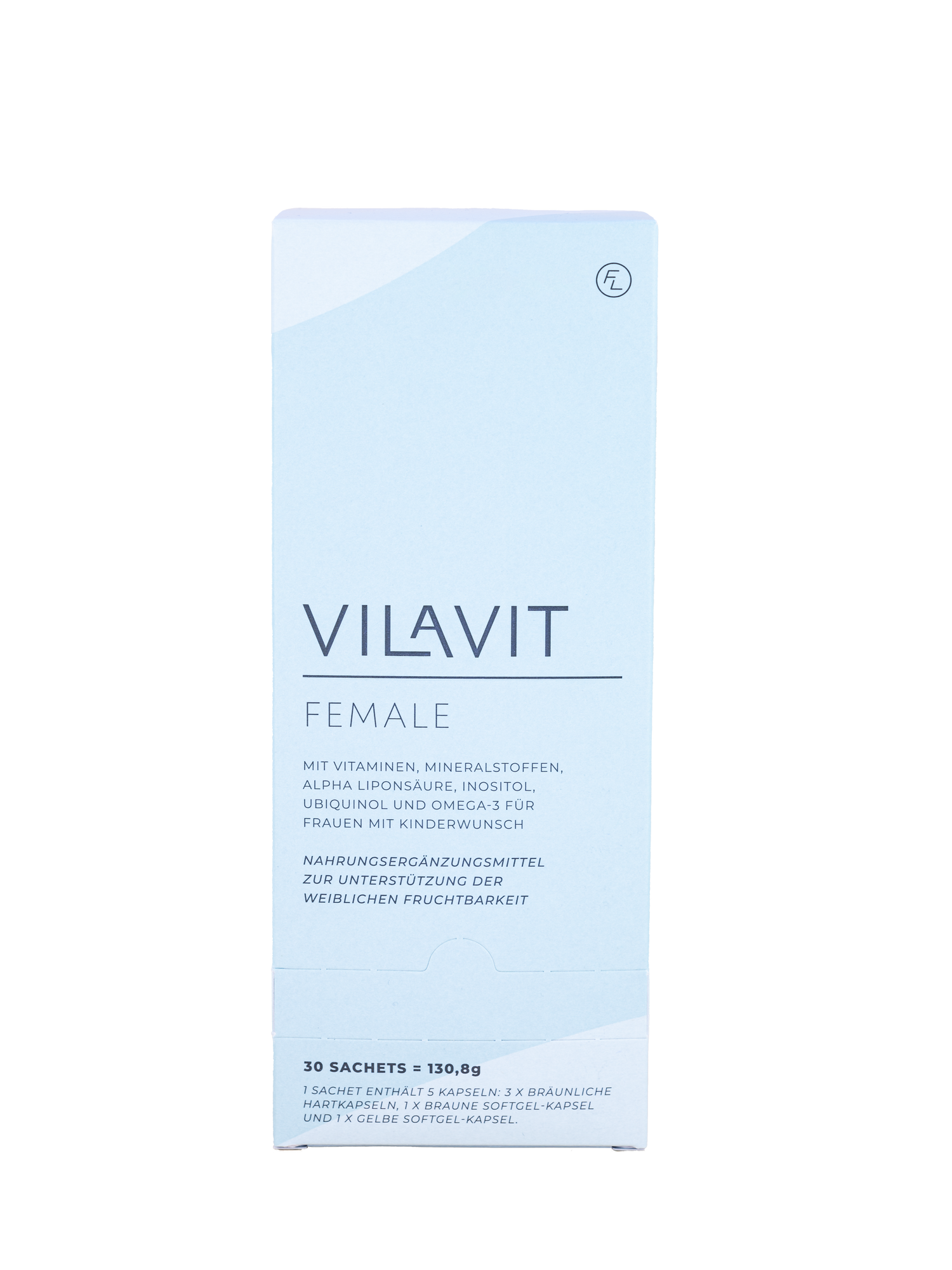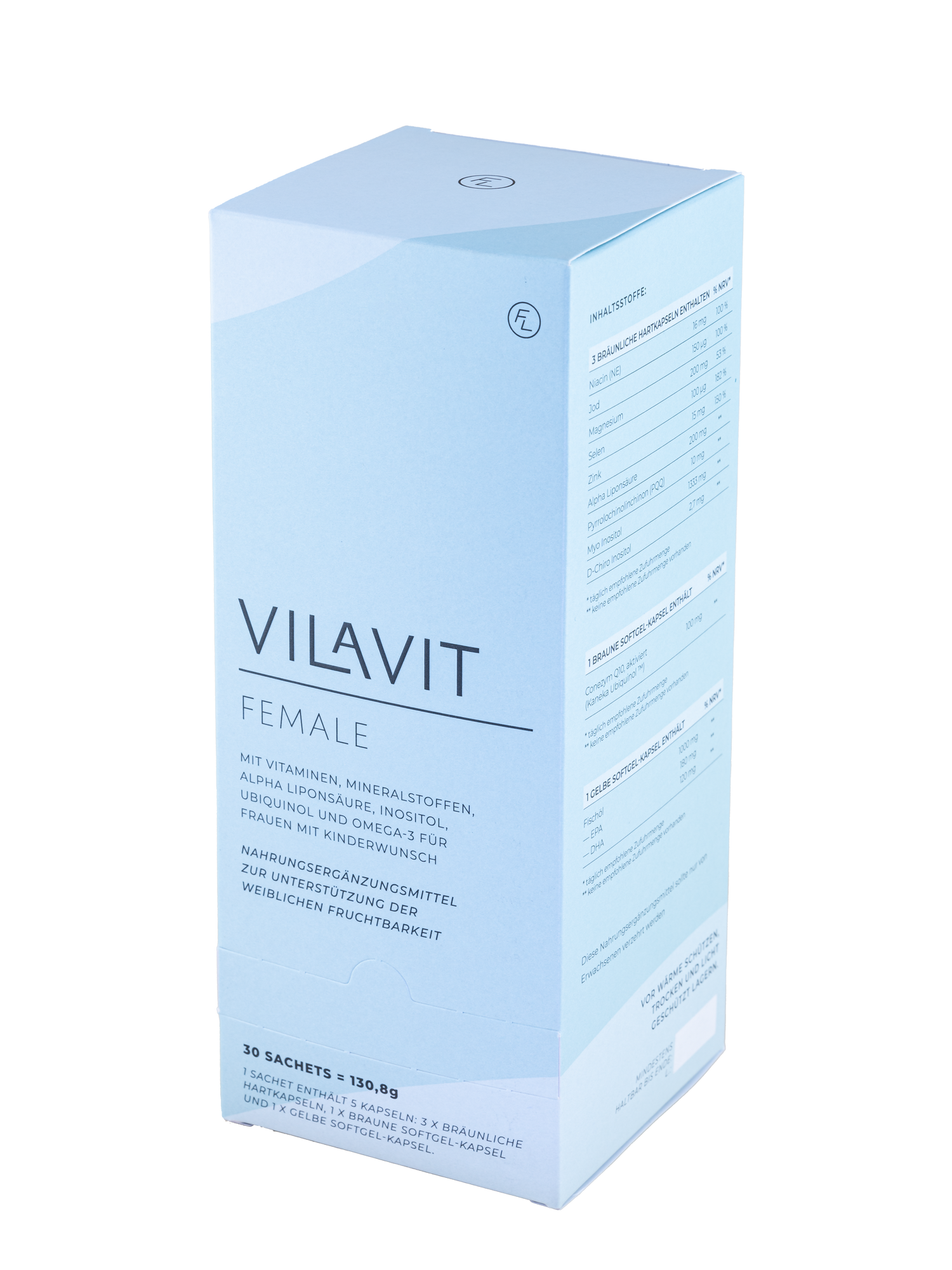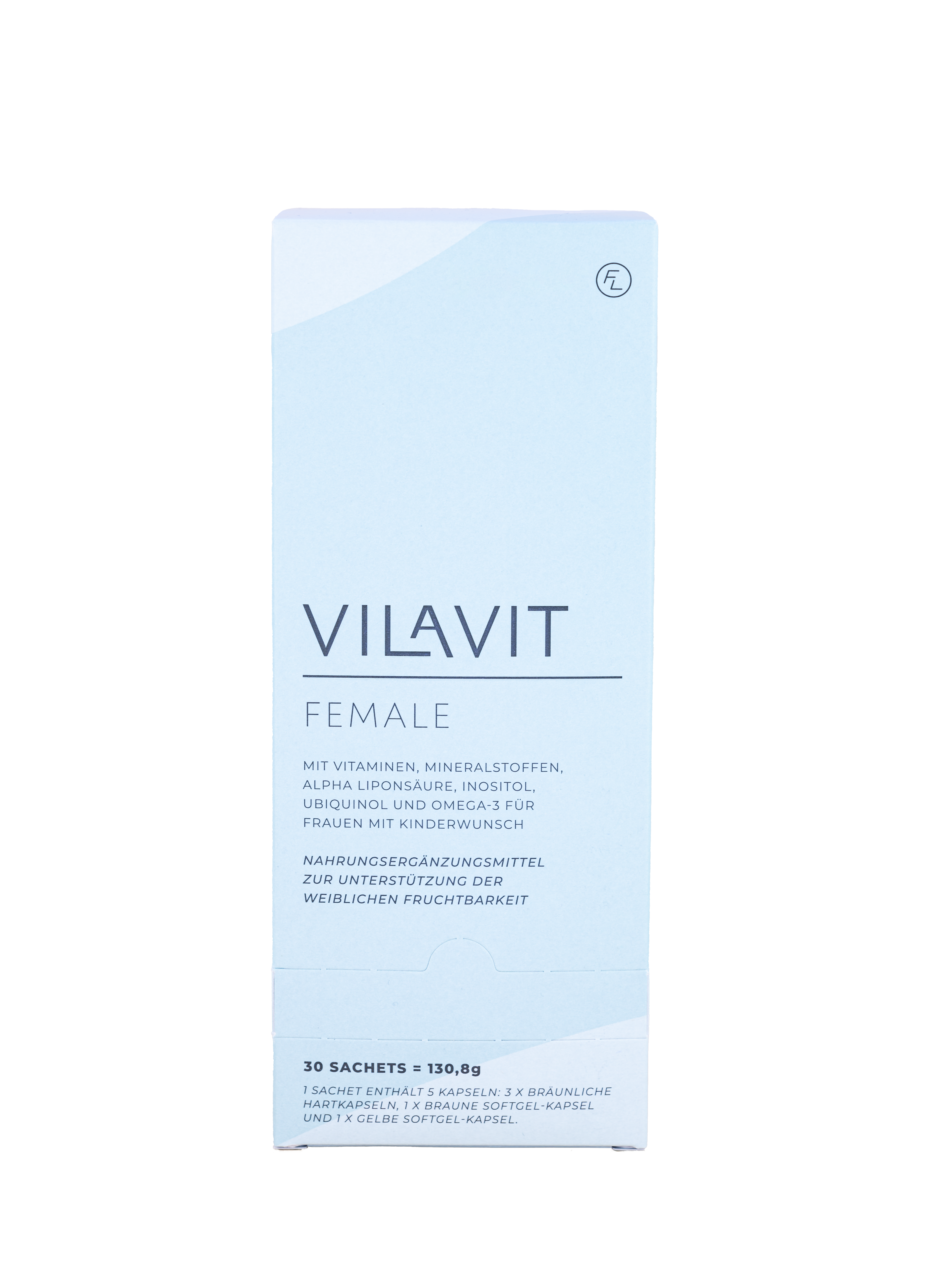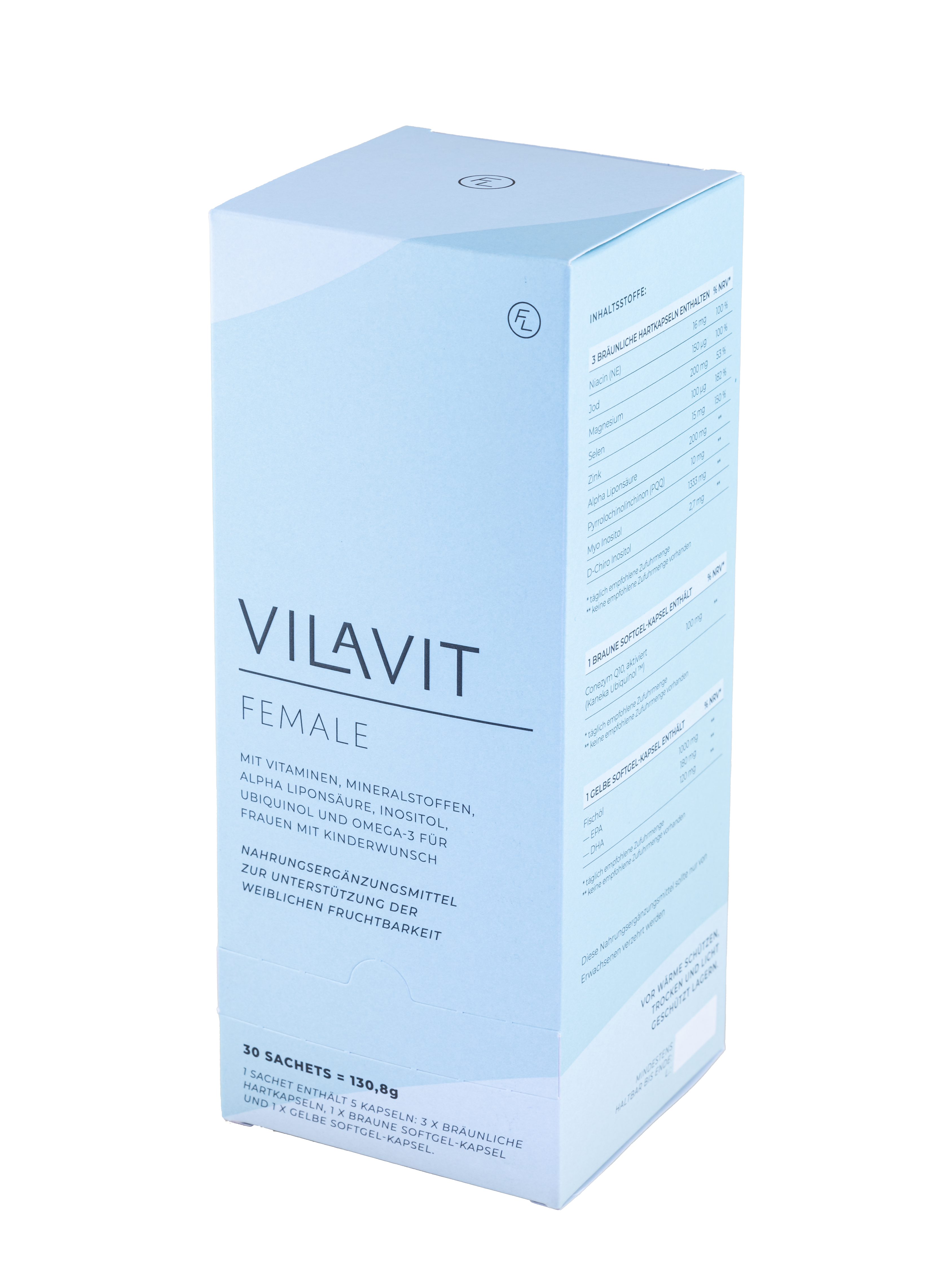When it comes to fertility, nutrition and nutrients play a crucial role. An important component that is often overlooked is Omega-3 fatty acids, which support fertility by promoting hormonal balance, egg quality, embryo implantation, and sperm health (Shivtia Trop-Steinberg et al., 2024). These essential fatty acids are particularly important because they cannot be produced by the body and must therefore be obtained through diet.
What Are Omega-3 Fatty Acids?
Omega-3 fatty acids are a family of fatty acids known for their anti-inflammatory properties.
The main Omega-3 fatty acids are:
- DHA (Docosahexaenoic Acid)
- EPA (Eicosapentaenoic Acid)
- ALA (Alpha-Linolenic Acid)
Alpha-Linolenic Acid (ALA), Eicosapentaenoic Acid (EPA), and Docosahexaenoic Acid (DHA) are obtained from plant sources (ALA) as well as from fish and seafood sources (EPA and DHA). Individuals who do not consume fish can obtain ALA from plant sources, but the conversion of ALA to EPA and DHA in the body is not efficient.
Omega-3 and Female Fertility
Studies have shown that Omega-3 fatty acids can have the following positive effects on female fertility:
-
Improvement of Egg Quality
In women aged 20-44, adequate intake of Omega-3 fatty acids was found to improve egg quality (Shivtia Trop-Steinberg et al., 2024).
Even in advanced reproductive age, Omega-3 fatty acids may offer an effective approach to slow ovarian aging and improve egg quality (Nehra D, 2012). -
Improvement of Fertilization and Pregnancy Rates
The same study also noted an improvement in fertilization and pregnancy rates (Shivtia Trop-Steinberg et al., 2024).
According to a 2022 study, women who took Omega-3 fatty acids had a 1.51 times higher likelihood of becoming pregnant compared to women who did not take Omega-3 fatty acids (Stanhiser J, et al., 2022). -
Improved Implantation Chances
Studies suggest that a diet rich in Omega-3 fatty acids has a positive influence on fertility, possibly through effects on egg quality and embryo implantation (Chiu YH et al., 2018). -
Hormonal Balance
Another study indicates that women who regularly consume higher amounts of Omega-3 exhibited more regular menstrual cycles than those who consumed lower amounts. A positive influence on follicle-stimulating hormone (FSH), progesterone, and estrogen was also observed (Mumford, S.L. et al., 2011).
Omega-3 and Male Fertility
In men, Omega-3 has been shown to improve sperm count and motility, potentially increasing the chances of successful fertilization.
-
Improvement of Sperm Count
After treatment with Omega-3 fatty acids, a significant improvement in sperm count from approximately 11 million/ml to about 34 million/ml was noted (Munira et al., 2024). -
Total Number of Motile Sperm
A significant improvement in the total number of motile sperm was observed (Munira et al., 2024). Additionally, significant improvements in sperm motility and DHA concentration in semen plasma were documented (Hosseini et al., 2018). -
Improved Sperm Morphology
Men with higher Omega-3 intake showed improved sperm morphology compared to men without Omega-3 (Attaman et al., 2012).
The effects appear to be more pronounced at higher doses (over 150 mg DHA) and with longer durations of supplementation (more than 3 months).
It should be noted that there are also contrary studies that found no positive effect on sperm quality. The authors call for further research in this area.
Dosage of Omega-3 Fatty Acids for Fertility
Most health organizations recommend that healthy adults consume between 250 and 500 mg of Omega-3 fatty acids daily. However, specific recommendations regarding the breakdown of DHA (Docosahexaenoic Acid) and EPA (Eicosapentaenoic Acid), both of which play important roles in the body, are often lacking.
Fertility experts often recommend a daily intake of at least 250 mg DHA, as this component can be particularly beneficial for fertility. DHA is crucial for the development of eggs and supports a healthy pregnancy.
Sources of Omega-3 Fatty Acids
-
Fatty Fish
Fatty fish such as salmon, mackerel, herring, sardines, and tuna are rich in Omega-3 fatty acids. It is recommended to eat at least two servings per week.
However, it's important to pay attention to mercury levels in fish, especially in larger and longer-lived species such as swordfish and fresh tuna. -
Seafood
Seafood like oysters and caviar are also rich in Omega-3 fatty acids. -
Plant Sources
There are also plant-based Omega-3 sources like flaxseeds, chia seeds, walnuts, and hemp seeds. While these primarily contain Alpha-Linolenic Acid (ALA), they still contribute to Omega-3 intake. -
Supplements
Many studies confirm the effectiveness of additional Omega-3 supplementation alongside a healthy diet to promote both female and male fertility.
Especially for vegetarians or vegans, or individuals who do not regularly eat fish, supplements are important to achieve adequate Omega-3 levels.
Taking Omega-3 from known sources also reduces the risk of exposure to toxins and contaminants found in some fish species.
VILAVIT Female and VILAVIT Male contain high-quality Omega-3 fatty acids in the form of algae oil capsules with high doses of DHA.
Omega-3 Important During Pregnancy
Not only during the phase of trying to conceive, but also during pregnancy, Omega-3 fatty acids play a crucial role. DHA is particularly important for the development of the brain and eyes of the fetus and should be taken from the time of a positive pregnancy test.
Conclusion: Omega-3 Fatty Acids are Essential for Fertility
Omega-3 fatty acids play a vital role in supporting fertility and the health of both mother and baby during pregnancy. For women, Omega-3 intake can help improve egg quality, slow ovarian aging, increase pregnancy rates, and support the healthy development of the fetus and infant. For men, Omega-3 supplementation can improve sperm count, motility, and morphology. Therefore, couples trying to conceive should ensure they are getting enough Omega-3 fatty acids, particularly DHA, to create the best conditions for fertilization and a healthy pregnancy.
References
M. Munira, Nastaran Lasker, Rawnok Laila, Asma Akter, Jesmine Banu, Shakeela Ishrat. Effect of omega 3 fatty acid in infertile males with oligozoospermia International Journal of Reproduction, Contraception, Obstetrics and Gynecology, 2024
















